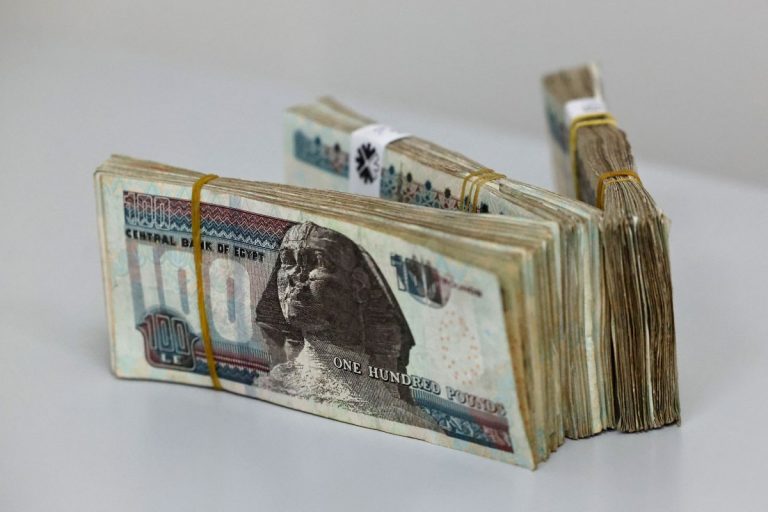Cairo – Egypt secured an additional USD 5 billion in International Monetary Fund (IMF) loans on Wednesday, the two sides said, after the central bank hiked interest rates and allowed the Egyptian pound (picture above) to plunge by nearly 40 percent.
The Central Bank of Egypt commited to “allowing the exchange rate to be determined by market forces”, saying in a statement that it was “crucial” to unify the official and black-market exchange rates.
By the market’s close on Wednesday, the pound was trading at a record low of around 50 to the US dollar, after more than a year of a stabilized official exchange rate of around 30.9 against the greenback.
Shoppers in Cairo voiced concern about the move, with one of them, Ezzat Hemaida, saying it “affects us in every way”. “Once the merchants knew the rate has changed, the prices rose immediately,” he told AFPTV.
Egypt’s Prime Minister Mostafa Madbouly and the International Monetary Fund said a deal had been signed to increase an IMF loan package from $3 billion to $8 billion.
The IMF’s Egypt mission chief, Ivanna Vladkova Hollar, welcomed the measures, saying they were “decisive steps to move toward a credible flexible exchange rate regime”.
She also said the move would “help increase the availability of foreign exchange”, after months of severe shortages that caused a surge in the black-market rate and raised fears Egypt would be unable to service its massive foreign debt bill.
It was not immediately clear whether the bank would continue efforts to manage the pound’s depreciation – as it has repeatedly done in the past – or if market forces would be entirely free to set a new unified exchange rate.
UAE investment
A fully flexible exchange rate and a tighter monetary policy were among the conditions set by the IMF, which for the past year has delayed its loan tranches and reviews.
Wednesday’s announcement came with a staff-level agreement, according to an IMF statement that did not specify a timeline.
Egypt had already devalued its currency three times in recent years.
But it had previously held back from fully floating the pound, citing concerns for the impact on Egyptians, two-thirds of whom live on or below the poverty line.
Analysts say Cairo has been emboldened to bite the bullet on exchange rate reform after the announcement late last month of $35 billion in foreign direct investment by the United Arab Emirates, which Hollar said “alleviates the near-term financing pressures”.
Reproduction is prohibited.




